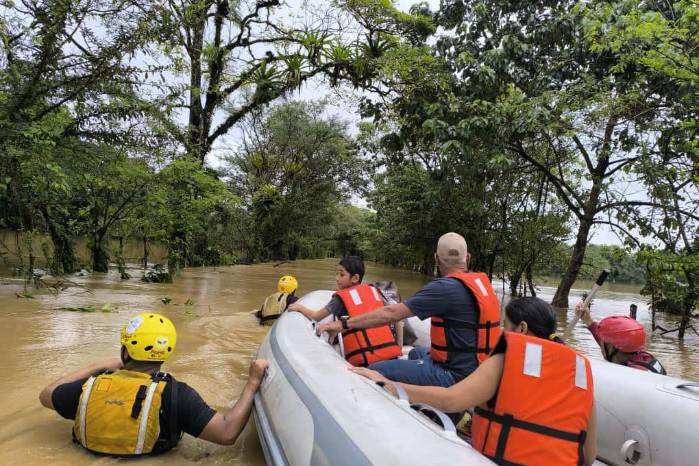Durante su paso por Panamá, el trío conversó con La Estrella de Panamá sobre su evolución artística y el significado profundo que encierra su nombre y...
- 30/04/2009 02:00
PANAMA. Plans for the construction of a refinery in the Baru district, province of Chiriqui have not been discarded.
Virgilio Vergara, Chiriqui’s governor, holds that the feasibility studies are ongoing. According to the governor, the studies are progressing positively and important announcements could be made in the upcoming days.
“This is a very important project, for the province as well as the rest of the country, because it is an billionaire investment,” he said.
For the governor, the current financial crisis that global economies, particularly the United States, face should not put a dent on this project.
Vergara claims the government is working in creating favorable conditions for the construction of the refinery, by building and fixing roads, and training qualified labor force.
He reiterated that talks with Qatar have never stopped.
Qatar Petroleum International, Occidental Midstream Projects Ltd. (a subsidiary of Occidental Petroleum) and the Panama Government signed a Memorandum of Understanding (MOU) to develop an oil refinery in the Republic of Panama with design capacity of 350,000 barrels of crude oil per day, in 2007.
The project aims to meet the growing demand for fuel and oil derivatives for the local and neighboring markets.
Worth an estimated $7 billion, the project would represent a greater foreign direct investment in infrastructure than the expansion of the Panama Canal.
If the project goes through, much of the refinery's output is expected to be delivered to the west coast of the United States.
However, with an agreement with Petroterminales of Panama (PTP), given the relative proximity of the Atlantic and Pacific oceans, the refinery could potentially deliver its output to the US East Coast and European markets.
PTP has oil pipelines from one coast to the other in addition to two oil piers capable of offloading supertankers.
According to Occidental, the project would generate approximately 6,000 new direct and indirect jobs.
New jobs directly related to the project would be management, administrative, technical operations, services, laboratory, computers, maintenance and security positions.
Indirect employment generated by the project would include port services, the supporting service industry (sale of food, banking, etc), heavy trucks, construction, transport and education.

















